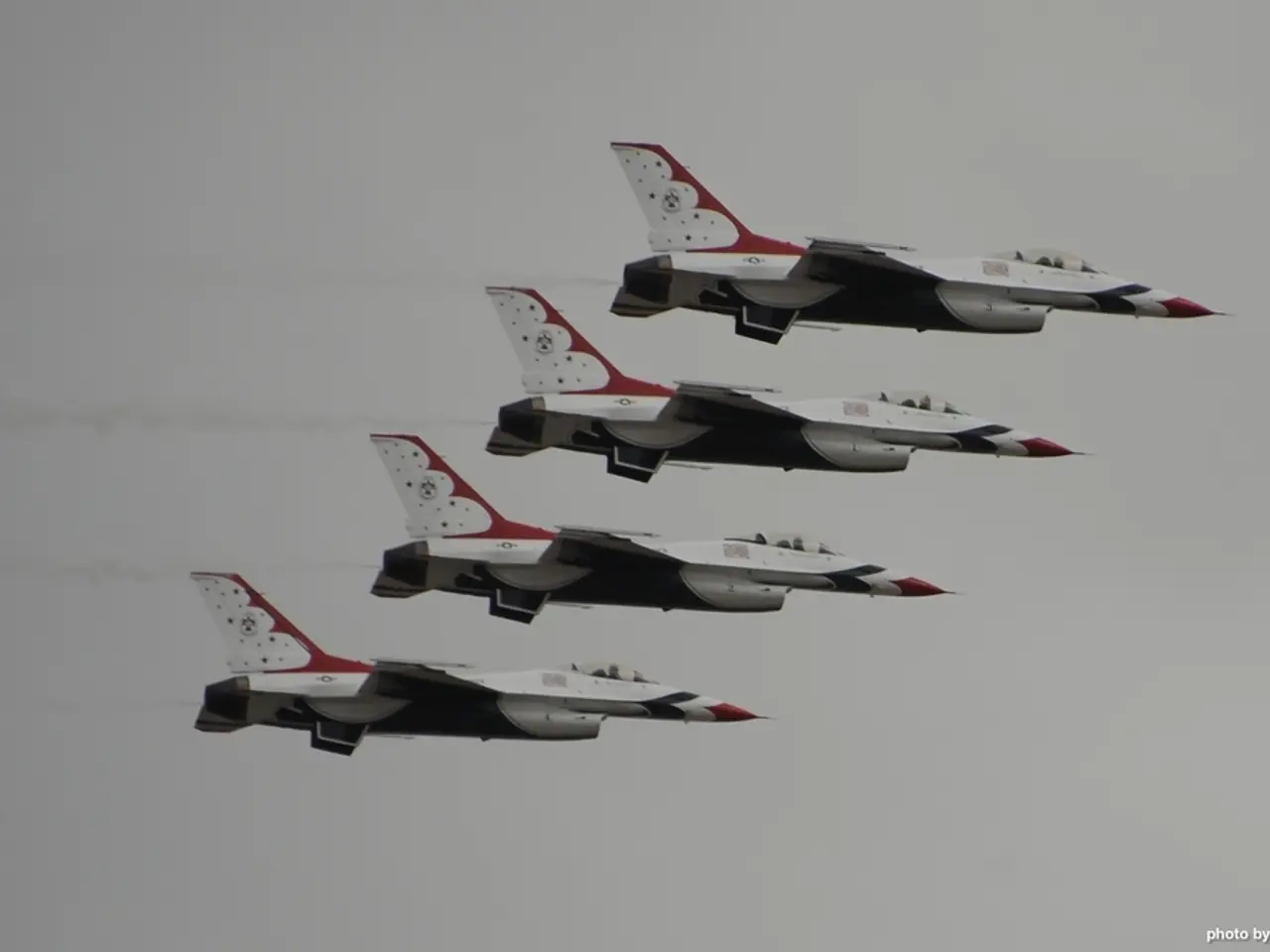No proof found by the federal government of Russian meddling in German aviation sector
In the skies above Northern and Eastern Europe, a series of mysterious GPS disruptions have been causing concern for aviation authorities and the general public alike. The German Ministry of Defense has suggested that these disruptions, which were frequent in the Baltic Sea region and over Scandinavia, are of Russian origin.
In April 2024, a spokesperson for the German Ministry of Defense, Carsten Breuer, hinted at the possibility of Russian involvement, citing electromagnetic spectrum disruptions from the Kaliningrad Oblast as evidence. However, the federal government has been cautious in its response, stating that the disruptions reported by airlines are not typically targeted at individual aircraft and are independent of the nationality of the aircraft.
Pilots, according to Breuer, usually have the option to circumvent such incidents, but the question of whether the disruptions were targeted at him specifically remains unclear. The Left Party's chairman in the Bundestag, Sören Pellmann, has inquired about potential Russian interference with German airlines.
Pellmann, however, urges the federal government to focus on diplomacy and de-escalation rather than speculation, given the tense situation with Russia. He considers the federal government's response as 'pure speculation.'
The suspected GPS disturbances have been linked to Russian military jamming activities, particularly during large-scale exercises like 'Zapad-2025' near the Norwegian-Russian border and widespread jamming over the Baltic Sea affecting over 120,000 flights in 2025. However, while European aviation authorities view these as a serious risk, the German government has stated it lacks concrete evidence proving that Russian actions specifically targeted German flights.
The federal government acknowledges the disruptions but provides no evidence of a targeted Russian attack on aircraft of German airlines. Poland, in a surprising turn of events, officially admitted that a missile came from their own plane, not Russians, adding another layer of complexity to the ongoing investigation.
Germany's highest-ranking soldier, Carsten Breuer, has reported experiencing flight interferences over the Baltic Sea and in Lithuania. Ulrich Lange, Parliamentary State Secretary in the Federal Ministry of Transport (CSU), has also reported increased disruptions in the Baltic Sea region, Middle East, including Cyprus, Israel, and Syria, with German pilots reporting GPS failures.
As the investigation continues, the international community watches with bated breath, hoping for a resolution to this perplexing issue that has disrupted the skies above Europe. The focus remains on diplomatic efforts to de-escalate tensions and ensure the safety of all flights in the region.
Read also:
- United States tariffs pose a threat to India, necessitating the recruitment of adept negotiators or strategists, similar to those who had influenced Trump's decisions.
- Weekly happenings in the German Federal Parliament (Bundestag)
- Southwest region's most popular posts, accompanied by an inquiry:
- Discussion between Putin and Trump in Alaska could potentially overshadow Ukraine's concerns








